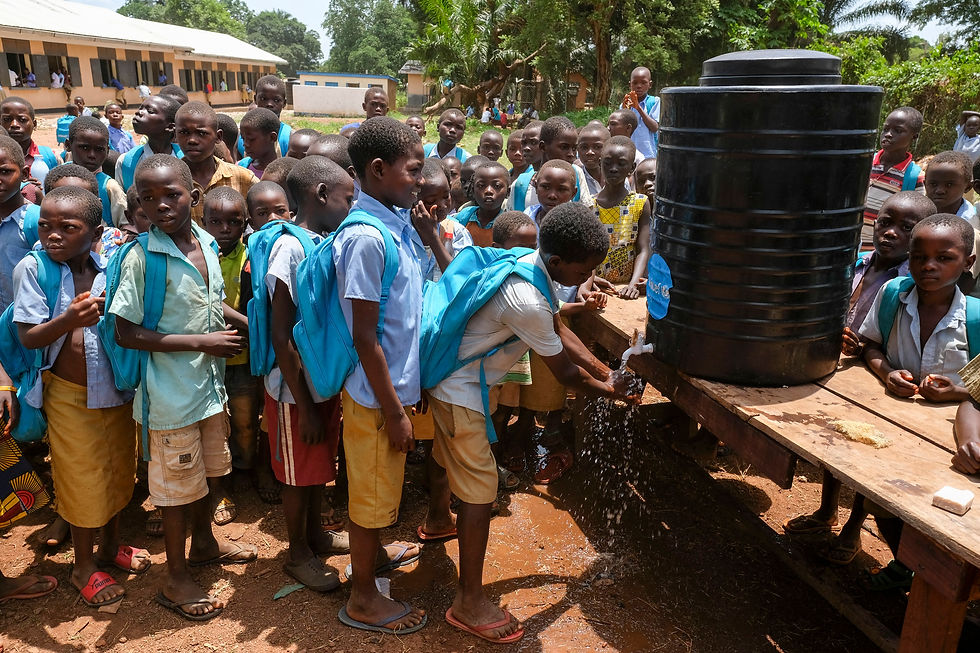UNICEF calls for increased sanitation funding in schools
- Merio Jimmy
- Mar 20, 2021
- 2 min read
Merio Jimmy, Juba
UNICEF have revealed that funding for critical water, sanitation and hygiene (WASH) programmes in South Sudan has been halved over the past 6 years. Dirty water, poor sanitation and hygiene are the main contributors to acute watery diarrhoea (AWD), one of the leading causes of child mortality in South Sudan.
In 2014, UNICEF South Sudan was able to raise $28.7 million for its WASH programmes, leaving a 30% funding gap. In 2020, the funding gap was 58% with only $16.3 million received. For the past decade, the organisation has used resources from other areas to provide a minimum level of WASH services to the most vulnerable in South Sudan. Most recently, this has included those affected by flooding in 2020. However, UNICEF have said that without an increase in funding WASH support will have to be scaled back.

'When you deny someone their right to clean water, sanitation and hygiene, you are also denying them the right to health, a life, protection and dignity', said Hamida Lasseko, UNICEF Representative to South Sudan.
'The foundation for a healthy and productive life as an adult is laid at young age. Every time a child gets very sick from lack of WASH services, the foundation withers and some will not be fortunate enough to see adulthood. This is not acceptable, as it can be avoided', Lasseko commented.
Only 36% of households in South Sudan report having access to an improved water source less than a 30 minutes round trip away. Meanwhile only 17% own any form of latrine in their compound. This demonstrates the work that remains enforcing the universal right to sanitation and hygiene.
UNICEF are currently focusing on increasing WASH services in schools. This seeks to enable children and their surrounding communities to have access to communal boreholes, making all users healthier. By focusing on schools, it is also hoped that educational outcomes will improve.

'When children in South Sudan survive and do well in school, South Sudan as a country does better', Lasseko has said. 'We get healthier, smarter and more confident children and this is important as South Sudan needs a bright generation of children who can continue to develop the country and sustain peace. With all this considered, we all have a stake in WASH in Schools becoming a priority'.
Over the last five years, UNICEF has established 402 boreholes and constructed 321 latrines in schools across South Sudan. Still, only 1/3 of schools in South Sudan have access to water and usable sanitation facilities. More investments must be made to increase coverage for a better common future.








Comments